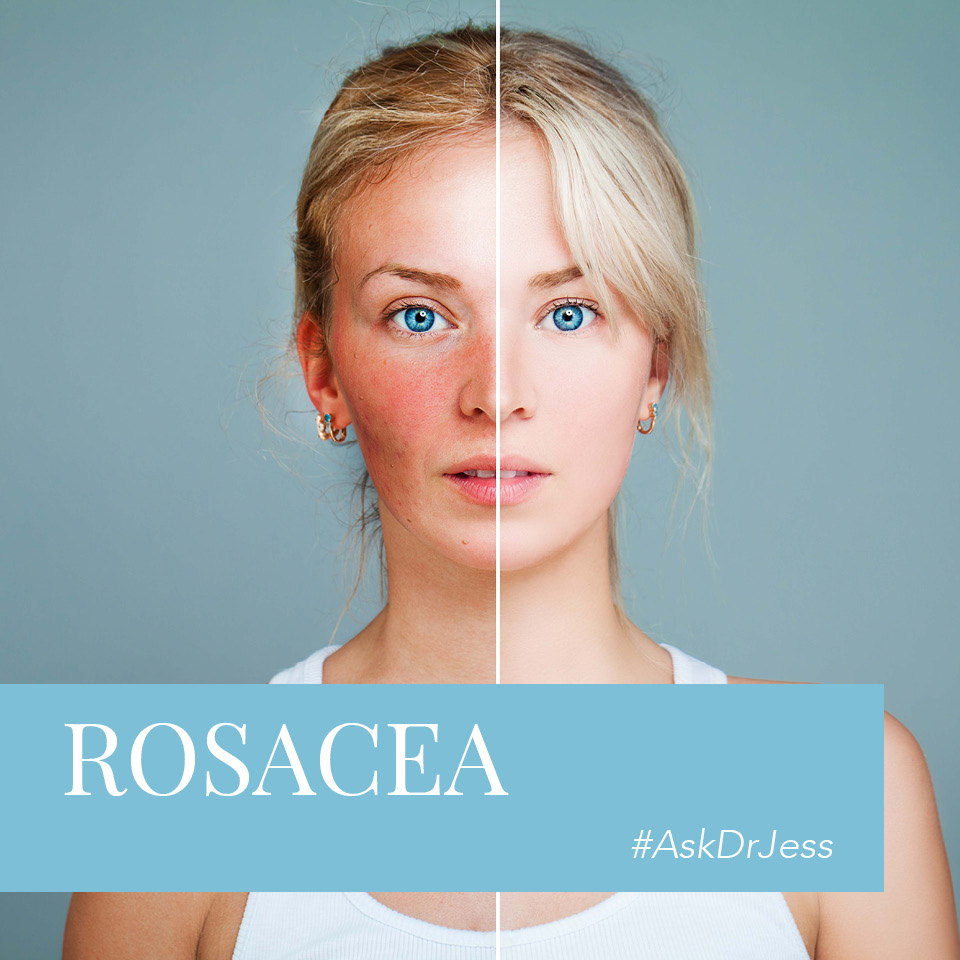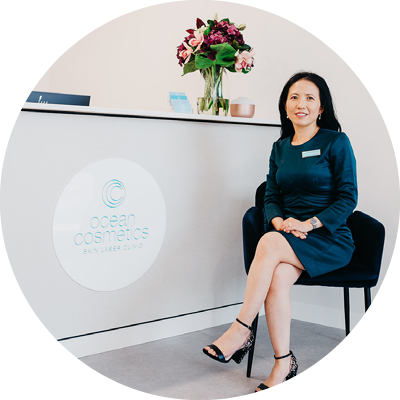
#AskDrJess – Rosacea
After an amazing first article all about Melasma by Dr. Gina (you can catch up here), we spoke to Dr. Jess about one of her areas of interest – Rosacea. Rosacea is a commonly misunderstand skin condition, but it can have a big impact to the lives of those that have it.
In her first #AskDrJess article, Dr. Jess discusses the common features of Rosacea, what causes it to occur and her recommendations for treating and managing the inflammatory condition.
Ocean Cosmetics: We know there’s a lot of confusion around this condition, so can you tell us what exactly is Rosacea?
JW: Rosacea is a common chronic relapsing inflammatory skin condition characterised by persistent centrofacial redness with periodic intensification by potential trigger factors.
Some facial features may include:
- acne like pimples
- redness or flushing of face
- prominent capillaries / broken blood vessels
- and thickening of skin around nose, and red eyes.
Minor features may include burning stinging sensation, and dry appearance.
Ocean Cosmetics: Why does it occur?
JW: Rosacea is a condition this is not completely understood. New updates show it has complex pathophysiology, and involves different triggers and neurovascular inflammation.
There has been ongoing research on more accurate diagnosis, but there are four major pathologies contributing to Rosacea.
- 1. Pre-disposing factors – genetic predisposition – it has been linked with certain genes and associated auto-immune diseases, eg. inflammatory bowel disease, or diabetes.
- 2. Abnormality in immunity whether it’s innate, eg. skin barrier dysfunction or adaptive immunity dysregulation, eg. due to our defence cells mediated response.
- 3. Trigger factors like ultraviolet radiation, microbial stimuli, heat, stress, Microbial colonisation, alcohol, and spicy food.
- 4. Neurovascular dysregulation due to abnormal peptides.
These can all play roles as triggers of Rosacea.
Ocean Cosmetics: Who does it affect?
JW: It can affect anyone, but typically it affects more women than men. Those with above mentioned risk factors are more likely to develop Rosacea in their life time.
Ocean Cosmetics: Can it be cured?
JW: Rosacea is a chronic relapsing condition and unfortunately it cannot be cured. However, there is treatment available to keep it under control and minimise flare ups. It requires commitment for ongoing monitoring and maintenance therapy.
Ocean Cosmetics: What do you recommend for treating or managing the condition?
JW: Rosacea can seriously affect a patient’s quality of life. Thus, early diagnosis and starting treatment is crucial. Current therapy options must address multi-factorial causes.
It is important to educate patients of the natural course of disease and help set realistic expectations and understand the role of therapy. The treatment plan is adapted to the individual and often require a holistic approach from inside out to balance the disease and the treatment.
This involves a healthy diet, as some food are more inflammatory than others, and create more stress on body and our microbiota.
Appropriate supplements may enhance normal immune response, eg. zinc.
Skin care with aim to photo protect skin, reduce skin irritability and sensitivity. Careful choice of skin care products is required to minimise irritation. Building a healthier skin barrier function is crucial in inflammatory skin condition such as Rosacea.
It is also important to avoid triggers, eg. extreme temperatures, ultraviolet radiation, spicy food, wind, and stress.
Specific treatment includes topical prescribed medical therapy in gel form or sometimes in oral tablet form may be required. These therapy often either target in reducing the microbial colonisation or aim to have anti-inflammatory effect. These medications can be used alone or in combination.
Laser therapy including broadband light or vascular lasers may help to reduce refractory background erythema and broken capillaries, and flushing episodes. Different laser therapies target different size of vessels, and number of treatment sessions and length of laser treatment varies with individuals but more often than not requires long term maintenance therapy and management plan.
OC: What should I do if I suspect I have Rosacea?
JW: If you’re concerned with redness, flushing or any of the other signs of Rosacea mentioned above, I recommend consulting a healthcare professional, such as myself or Dr Gina, to discuss your concerns. They will be able to make the correct diagnosis and put together a treatment plan that is best suited to you.
 Join the education with #AskDrJess.
Join the education with #AskDrJess.
Please, ask me anything! I am committed to educating, sharing and helping as many people feel comfortable and confident in their own skin. Submit your questions here!
